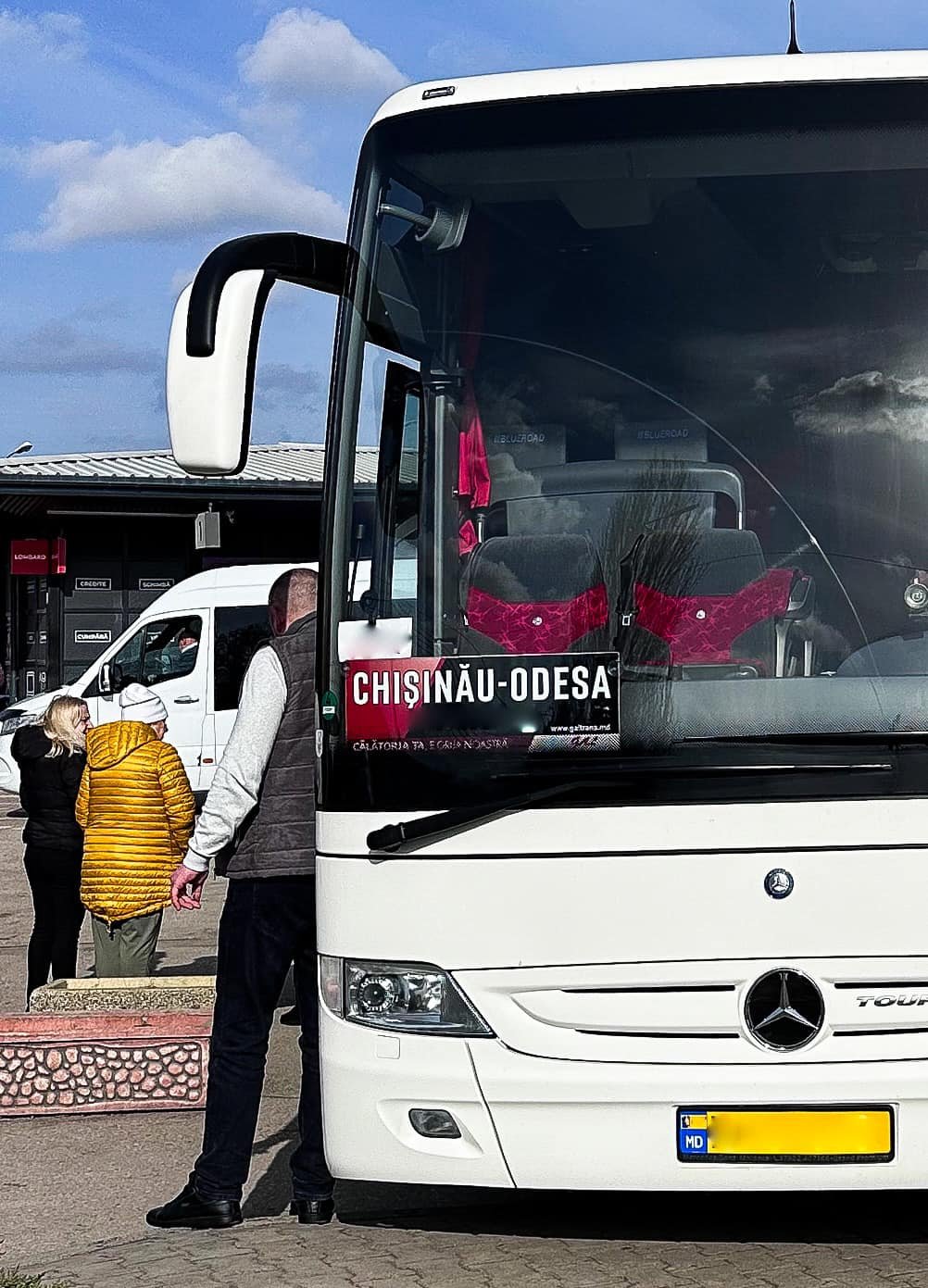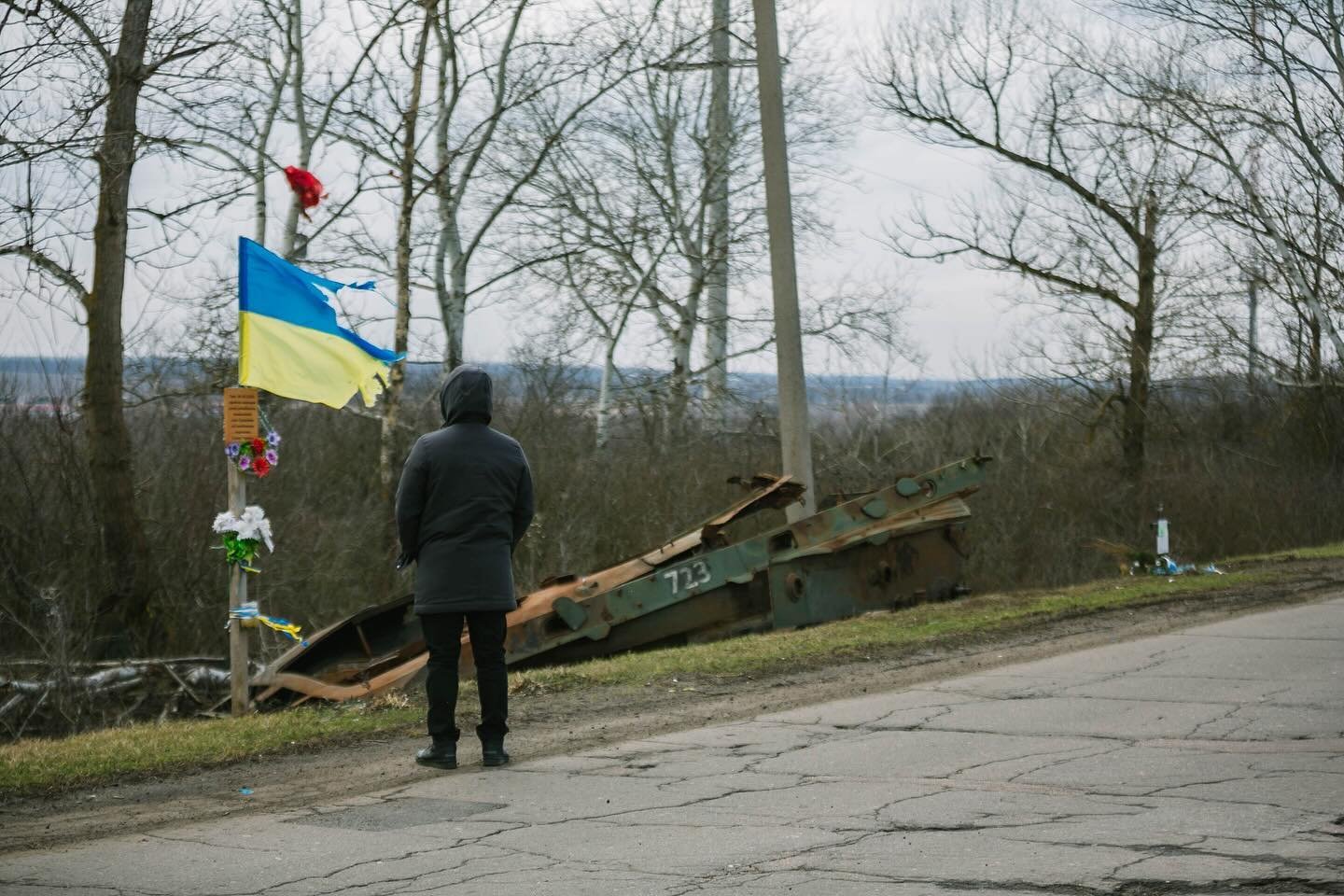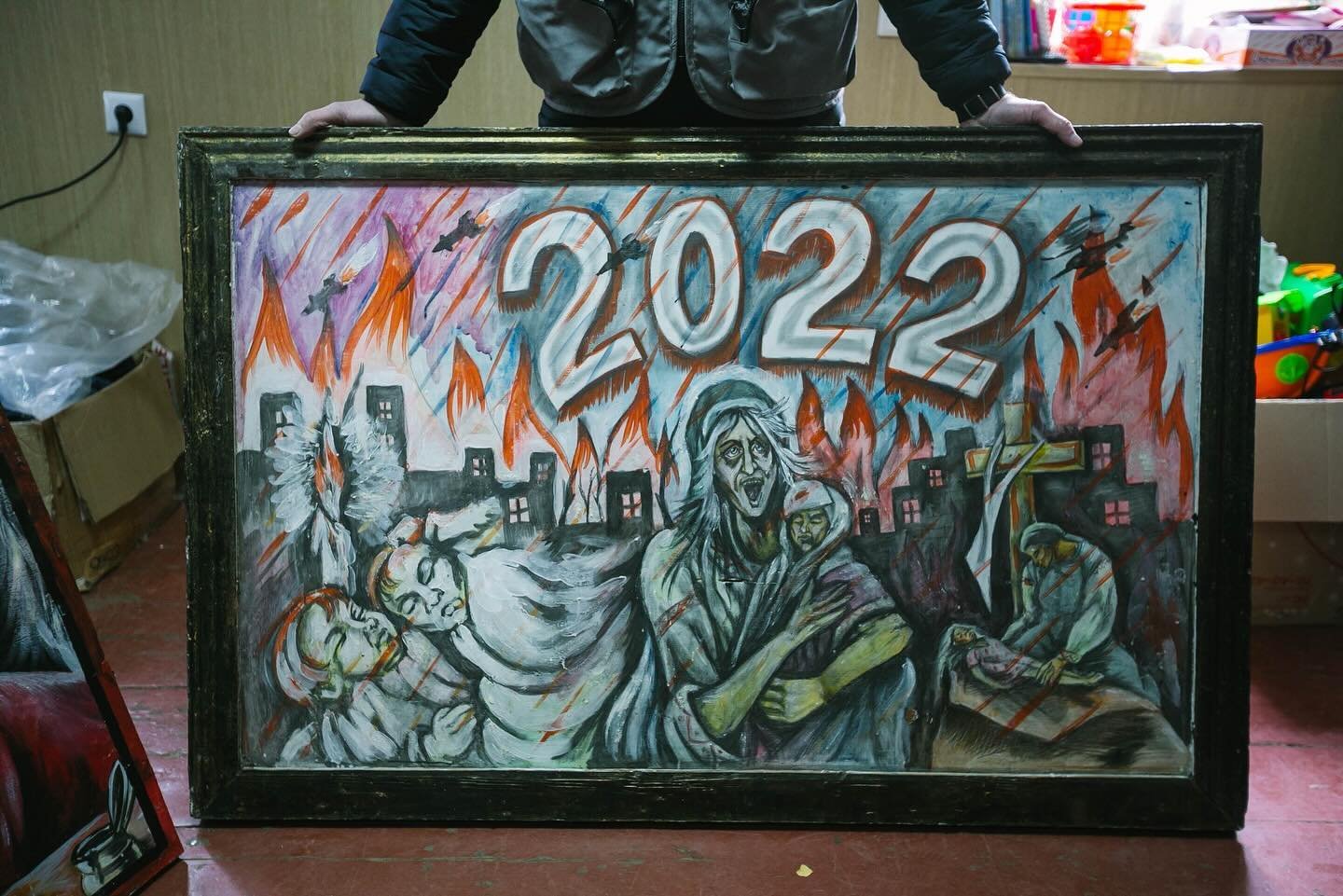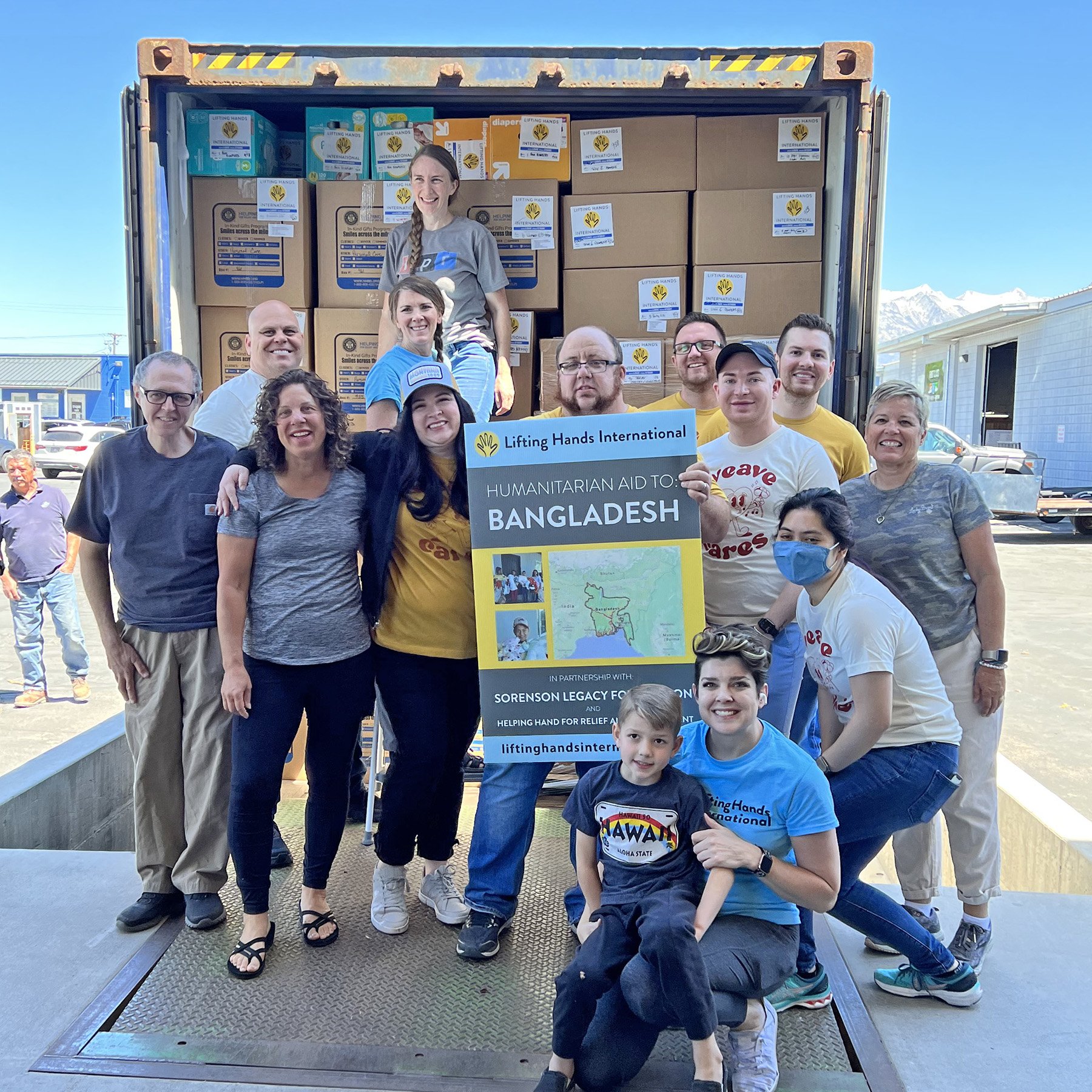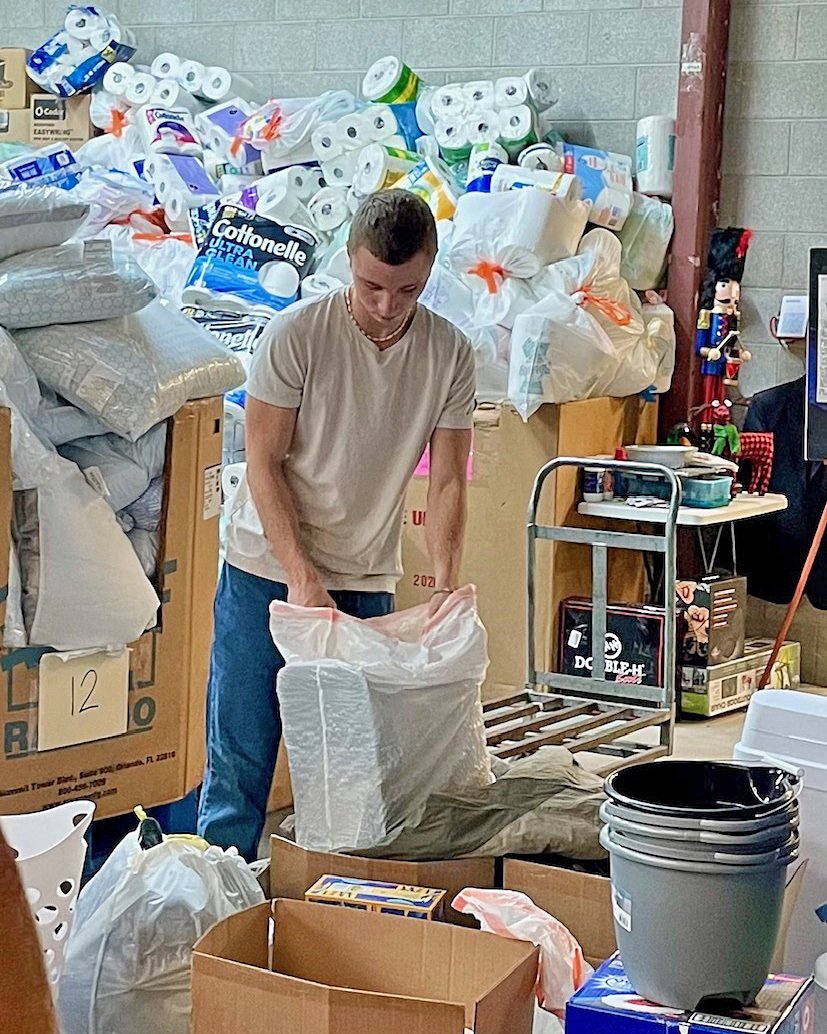by Hannah Baron, LHI Volunteer
Melissa facilitated psychosocial activities at the Female Friendly Space during her time at the LHI Community Center in Serres, Greece.
Melissa began her journey in the world of humanitarian aid as a volunteer at LHI’s Female Friendly Space (FFS) in Serres, Greece. Today, she’s the CEO and founder of her own aid organization, Pads 4 Refugees, which does exactly what its name suggests: provide pads for refugee women. She regularly distributes pads to refugees and asylum-seekers in Washington D.C. and in Los Angeles, California, and has made distributions all over the world, including in Ukraine, Gaza, Uganda, Venezuela, Mexico, Syria, Turkey, Israel, and Pakistan.
After getting her second law degree in International Human Rights law at Northwestern, Melissa struggled to find a job or an internship she felt passionate about.
A friend suggested that she volunteer at LHI’s Community Center in Serres, Greece which at the time was populated almost entirely with Yazidi refugees. As it turned out, Melissa had written a lot about the Yazidi refugee crisis in school. Everything clicked into place. She decided to volunteer at the refugee center’s Female Friendly Space.
Upon arriving in Serres, Melissa was all nerves. She didn’t know exactly what to expect.
“And then it just seemed like–I think this is probably what everyone says–it just seemed like a really warm, welcoming place. I just instantly was glad I was there,” she said.
Melissa soon realized how important a supportive Female Friendly Space was for the women who gathered there. “They were all carrying trauma from the genocide that had happened to them, or what had happened to their families, and the idea was really just to give them a break from all that and to have a peaceful space where they could relax,” she said.
Women at the Female Friendly Space participate in a workshop preparing them to potentially work in a salon.
At the Female Friendly Space, Melissa helped clean, run the social media accounts, and organize various activities like spa days, crochet circles, and movie nights.
“These women were carrying these hard burdens and they’re waiting to see if their asylum claims are getting met, but I just really enjoyed going in there and doing activities with them and getting to know them,” she remembered.
Melissa also learned that women got their period products at the Female Friendly Space. Each month she helped distribute period products to the women at FFS. The quality of pads the women received was not great, but with around 600 women and teenagers in need, even purchasing off-brand pads was very expensive. She thought about how helpful it would be to find someone willing to donate pads, so LHI’s funds could be redistributed towards other pressing needs, such as fixing a broken sewing machine.
When she came home from Serres, Melissa continued to have trouble finding work in her field. With all her free time, she wondered whether refugees outside of Greece also struggled to find period products.
As it turned out, this was a problem everywhere. Even the major refugee aid organizations, like the International Organization for Migration and the United Nations High Commissioner for Refugees, rarely handed out pads, and families struggled to find the funds to buy them on their own. When funds are limited, most women tend to choose food for their family or diapers for their babies over period products, Melissa explained. Therefore, aid organizations are more likely to prioritize those necessities.
Her idea was to lessen the burden for organizations like LHI that do provide period products by paying for the pads.
“I thought, ‘I can’t find a job, I'll just make up my own job. And it’ll be CEO of a non-profit,” she said. “And I didn’t expect to get enough money to pay me a salary, but it was something to do.”
Pads 4 Refugees has enabled the LHI Community Center in Serres, Greece to purchase high quality, name brand menstrual pads like those pictured here. Women are able to receive a package of pads each month at the Female Friendly Space.
Melissa started Pads 4 Refugees. It took about six months for her to raise enough money for LHI to be able to upgrade to high-quality, name-brand pads. Then, a group on another Greek island reached out to her, asking if she could help them provide women with pads as well. She could.
Melissa working on a pad distribution with MAM Beyond Borders, an NGO that LHI partners with to provide reproductive and sexual health seminars for women at the Female Friendly Space at the LHI Community Center in Serres.
To this day, Melissa says that she’s never reached out to any organizations asking if they need her help; they come to her. The humanitarian world is small, and words gets around.
Her biggest challenge is finding donors and raising money to meet everyone’s needs.
“I now have regular distributions with so many orgs in Greece and this one in Lebanon, and I just feel very obligated to keep it going. These women don’t have a lot of money to buy the basic things they need,” she said. “It’s not easy but I just think it’s the right thing to do, and no one else was really doing it at the time.”
Melissa’s next goal for Pads 4 Refugees is to boost her regular distribution in Lebanon so that the women there can use disposable pads all year round, rather than the reusable ones they often have to resort to now. To accomplish this, she has to stop expanding and start raising more money.
She says the easiest thing people can do to make a positive difference in refugees’ lives is sharing social media posts from aid organizations like hers that are looking for funding. You can also give, even if it’s just a few dollars. She stresses that you don’t have to give big to be a big help.
“I have several donors who donate monthly, and they donate five dollars, which people think is not a lot and it doesn’t make a difference, but…it actually does help. I’ve had donations that are like two dollars, but it just adds up,” she said.
Thank you Melissa for sharing your story with us! Pads 4 Refugees helps LHI supply women at the Female Friendly Space in Serres with period products, and helped us provide period products to women in Gaza. If you are looking to expand the number of organizations you support, we recommend Melissa and Pads 4 Refugees to you!









